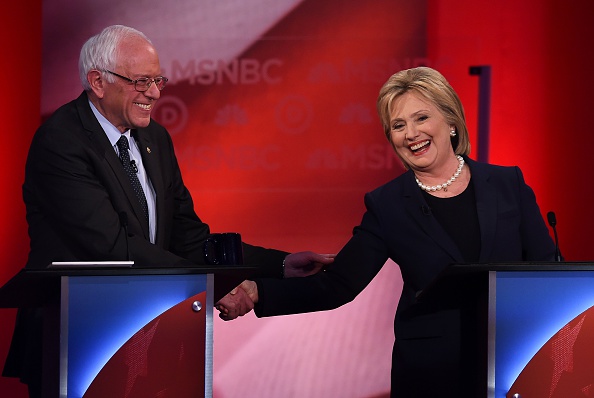
It’s been a whirlwind political campaign season. On the one hand, there are a variety of personalities who have made the campaign interesting, entertaining and even fun. On the other, the large field, particularly on the Republican side, has limited voters’ ability to evaluate the candidates. The debates could be the one opportunity that voters have to learn more about them, but that hasn’t been the case, which points to a failure of the campaigns, the parties, and the media.
Most voters get their only information about candidates by watching them on TV or online. They don’t read in depth. They don’t go to candidates’ websites and navigate through all the propaganda and policy prescriptions. They don’t fact-check. This year, the debates have seemed like a sport that the news media and Washington insiders have cooked up for their own entertainment, edification and ratings. The news media in particular has been derelict in its duty to inform the public.
Tonight’s Democratic debate presents an opportunity to fix a few of the problems that have been dogging the broadcasts thus far. For example, this is the first debate in this campaign broadcast by public television, which does not need advertisers and thus, does not have to be concerned with ratings. That fact, combined with two experienced, longtime PBS broadcast journalists as moderators, should result in a more serious and sober discussion of the policy issues at stake.
Furthermore, both journalists are women, Gwen Ifill and Judy Woodruff, representing the first presidential debate in which no male moderator will be present. While in a perfect world this should have no meaning, the visual alone communicates a powerful message: Women belong in positions of power. They can shape the debate—literally. We will predominantly hear women’s voices (I’m referring to sound, not message). With all the recent discussion around Hillary Clinton’s speaking voice, it will be interesting to see whether the debate changes for better or worse as a result of two, female, professional voice users being on stage with her.
Insofar as what Ifill and Woodruff should do to make sure the public receives the information they need to make an informed decision, that’s a tougher call. See below for some general suggestions for debates going forward, but here is one suggestion they can implement tonight: They should ask the toughest questions they can. They should challenge both Clinton and Sanders on answers and issues the moderators know to be false or misleading and they shouldn’t settle for talking points or stump speeches as answers.
For future debates, here are some improvements that can be made before it’s too late. (All times are Eastern.)
Political debates should serve the citizens of this country. Selecting our leader for the next four to eight years is one of the most profound decisions we make, one that affects our lives long after the person we elect leaves office. Every single time we see a candidate interacting with a journalist, we should learn something of substance that is new. So far that hasn’t happened.
More Must-Reads from TIME
- Donald Trump Is TIME's 2024 Person of the Year
- Why We Chose Trump as Person of the Year
- Is Intermittent Fasting Good or Bad for You?
- The 100 Must-Read Books of 2024
- The 20 Best Christmas TV Episodes
- Column: If Optimism Feels Ridiculous Now, Try Hope
- The Future of Climate Action Is Trade Policy
- Merle Bombardieri Is Helping People Make the Baby Decision
Contact us at letters@time.com